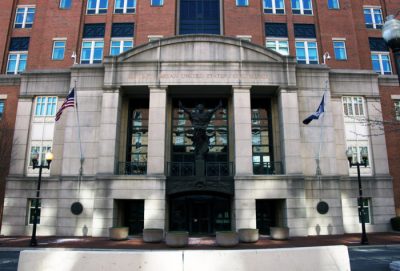Judge Delays Decision Whether to Unseal Assange Criminal Complaint

A decision whether to unseal U.S. government charges against Julian Assange was delayed for a week by Judge Leonie Brinkema in the United States District Court for the Eastern District of Virginia on Tuesday.
In her comments to the court, Judge Brinkema appeared to be siding with the government’s argument that there is no legal precedent for a judge to order the release of a criminal complaint or indictment in a case before an arrest is made.
However, Katie Townsend, a lawyer for the Reporters Committee for Freedom of the Press, which filed an application to “unseal criminal prosecution of Julian Assange,” told the court that the government’s inadvertent revelation of charges against the WikiLeaks publisher should prompt the court to release the complaint.
The government says it mistakenly included a passage referring to Assange in a totally unrelated case. The passage was reported this month in the press and was read in full by Judge Brinkema in court. It says the government considered alternatives to sealing, but that any procedure “short of sealing will not adequately protect the needs of law enforcement at this time because, due to the sophistication of the defendant and the publicity surrounding the case, no other procedure is likely to keep confidential the fact that Assange has been charged.”
The paragraph goes on to say that the “complaint, supporting affidavit, and arrest warrant, as well as this motion and proposed order would need to remain sealed until Assange is arrested in connection with the charges in the criminal complaint and can therefore no longer evade or avoid arrest and extradition in this matter.”
As additional evidence that the government was pursuing WikiLeaks, Townsend also cited the Jan. 2017 intelligence “assessment” that Russia had interfered in the 2016 election in which WikiLeaks is blamed for playing a role; congressional testimony from former FBI Director James Comey that the bureau had an “intense focus” on WikiLeaks; then CIA Director Mike Pompeo’s claim that WikiLeaks was a “hostile, non-state intelligence service;” and the naming of WikiLeaks as “Organization 1” in the government’s indictment of Russian intelligence agents for allegedly interfering in the election.
Government Calls Charges ‘Speculation’
But Assistant U.S. Attorney Gordon Kromberg argued that the government has never said it was investigating Assange, only WikiLeaks and those leaking to it. He said further that it was “speculation” that there are already charges against Assange based on anonymous press sources, even though the mistakenly published paragraph clearly speaks of the “fact that Assange has been charged.”
Kromberg told the court that the government could neither confirm nor deny that the passage relates to Julian Assange, nor could confirm or deny that he has been charged because to do so would admit Assange’s status, which the state contends must remain secret.
Judge Brinkema, who called the case “interesting, to say the least,” agreed that it was an “assumption” and “hypothetical” that the WikiLeaks founder has already been charged. But she asked Kromberg in court what “compelling” rationale there was to keep Assange’s status secret after the government’s inadvertent release.
Kromberg said he could not discuss in public the specifics in this case regarding sealing.
Judge Brinkema then listed the general reasons why indictments and complaints remain sealed before an arrest is made: to prevent a suspect from fleeing, from destroying or tampering with evidence, from pressuring potential witnesses, from being prepared to harm arresting officers and also to protect against alerting other defendants that might be named in a complaint or indictment.
Assange, however, is purposely not fleeing from the Ecuador Embassy in London as he fears he will be arrested by British authorities and extradited to the United States. It is highly unlikely he is armed and could harm arresting officers, who could enter the sovereign territory of Ecuador only with that government’s permission. Assange could possibly have alleged evidence on a laptop and others could be named in the complaint.
The judge then asked Townsend to name any case in which a judge had ordered the government to release criminal charges before an arrest was made. Kromberg had argued that there were none. Townsend requested a few days to respond.
Judge Brinkema gave both parties a week to make further submissions to the court.
*
Note to readers: please click the share buttons above. Forward this article to your email lists. Crosspost on your blog site, internet forums. etc.
Joe Lauria is editor-in-chief of Consortium News and a former correspondent for The Wall Street Journal, Boston Globe, Sunday Times of London and numerous other newspapers. He can be reached at [email protected] and followed on Twitter @unjoe.
Featured image: Federal courthouse in Alexandria, VA where hearing took place. (Source: Consortiumnews)

